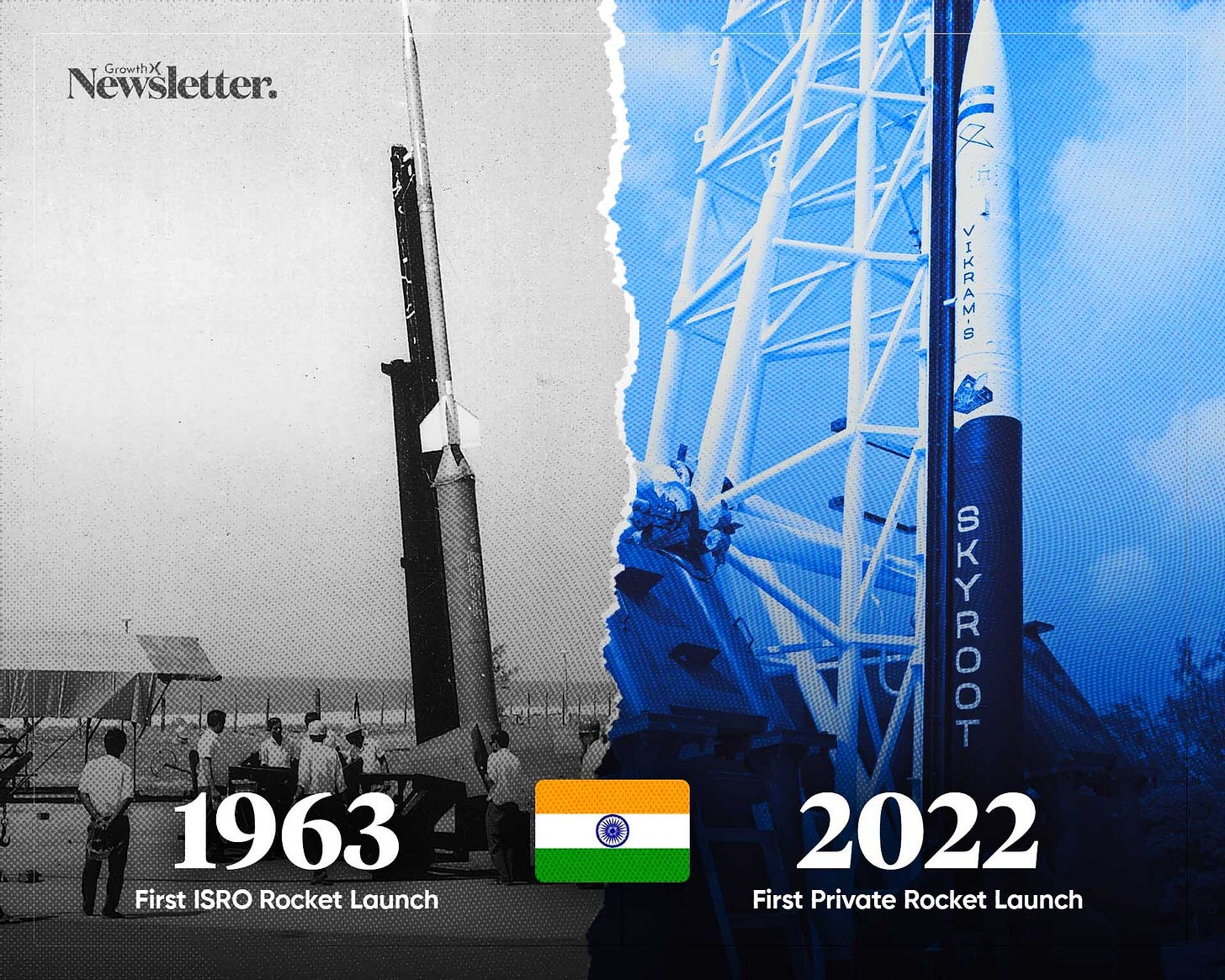Why space tech needs privatisation?
And ISRO's move to make it happen
Welcome to the 192nd edition of the GrowthX Newsletter. Every Tuesday & Thursday I write a piece on startups & business growth. Today’s piece is going to 94,400+ operators & leaders from startups like Google, Stripe, Swiggy, Razorpay, CRED & more
Putting Chandrayaan 3 on the moon & 80 lakh Indians watching it live is only the start. The cost-benefit of building space tech in India & selling globally will unfold this decade - here's how 👇
Let's set this right - you can't earn market share of this $450 Billion global category by focusing on government-owned ISRO. You need public-private technology sharing and a few more things.
In 2019, the Union Government set up the second space organization → IN-SPACe. It will overlook
The sharing of resources under DRDO/ ISRO
How new infrastructure will be built?
How to nurture and bring talent into the Indian space ecosystem?
The upfront capital before any promise of future revenue is a big problem for space-tech companies raising their early funding rounds. Equity has been the way to go with Manastu Space ($3 Million) and AgniKul Cosmos (~$26 Million) apart from a few others who have been able to raise.
But, space-tech is expensive 💰💰💰
SpaceX (which uses reusable rockets) charges $67 million per satellite launch.
That's more than any funding any Indian space-tech startup has raised in total.
You get the point.
How can India be the world's preferred satellite-launching country?
We have 3 problems to solve ⏬
1/ Need capital to ignite the fire 🔥
The core problem to be solved is ensuring smaller players can do satellite launches - that cash cow from the revenue line can then be re-invested. Plus, India lacks late-stage investors in this space.
2/ Shortage of components 🛠
There’s a shortage because not many local/ foreign players produce them in India. Production-linked incentives can solve this, creating an ecosystem of Tier 2/3/4 vendors.
3/ Shortage of talent 🫂
Every year, more than 3,50,000 aspirants pursue the degree in Aerospace Engineering and Operation Technicians in India. But, we still struggle to hire the right talent due to obsolete curriculum. Go speak to any space tech founder - they will rant about it.
But, can each of these problems be solved?
Absolutely. All you need is the intent to solve them. It will take public and private partners working together and not fighting among themselves and avoiding what happened with Team Indus <> ISRO.
If you are curious about space-tech startups and want to go down the rabbit hole, do check out Skyroot Aerospace - some killer work going on that deserves more appreciation and support.
That's all for now ✨
Do you know a friend who operates or wants to build in the space tech industry?
I am also writing a piece on the business model of space launches and India's whitespace on the cost benefits of becoming a global satellite launch hub. I will launch this in a future issue.




